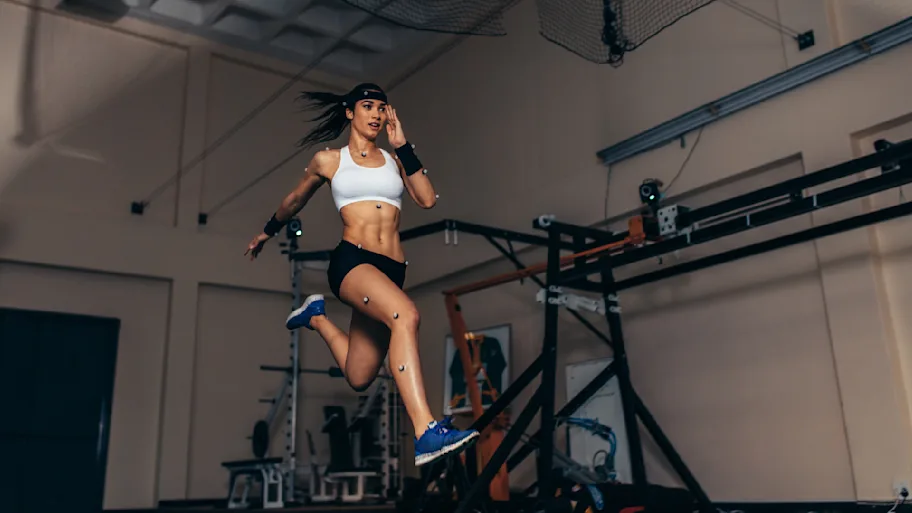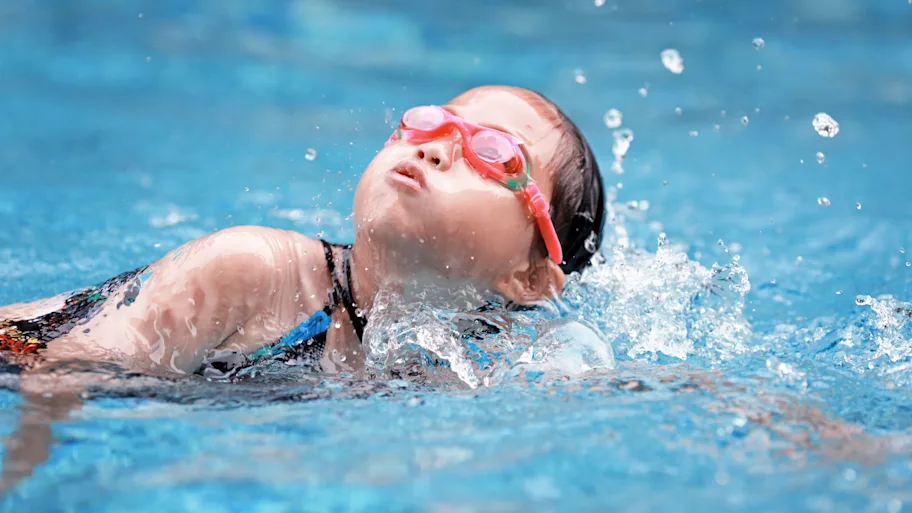
- Science News
- Featured news
- Taking sports science in her stride: how Dr Nerea Casal García aims to maximise performance on the track
Taking sports science in her stride: how Dr Nerea Casal García aims to maximise performance on the track

Dr Nerea Casal García is an athlete, personal coach, and injury readaptation specialist who last year completed a PhD on observational analysis in elite sports. Today, she is a professor at the Institut Nacional d'Educació Física de Catalunya of the University of Lleida, focusing on the theory and practice of training and performance optimization.
Casal García is the corresponding author on a new study in Frontiers in Sports and Active Living, which revealed major shift over the past five years in the stride patterns of female elite athletes during 400 meter hurdle competitions – a change that went together with a marked improvement in performance. Here, she answers our questions about her research and career as an sportswoman, coach, and scientist.
What inspired you to become a researcher?
In my case, curiosity played the most significant role. During my years studying sports sciences, I constantly wondered how different training methods might work or how to optimize the performance of the athletes I coached. Moreover, I have always enjoyed teaching, so the opportunity to combine research and education led me to pursue an academic career after completing my master's degree. Having always practiced athletics, I became increasingly aware, through my experience as a coach, of the gaps in training information that could benefit both coaches and athletes. This realization ultimately inspired me to focus on research in this field.
Can you tell us about the research you’re currently working on?
I am currently continuing my work in performance analysis in athletics. Specifically, along with my research group, I conduct biomechanical analyses in high-level competitions. At the same time, I combine this with new projects aimed at studying the different athlete profiles and identifying the key variables that determine performance in various events. We hope that these projects can provide valuable insights on how to tailor athlete training based on their individual characteristics.
In your opinion, why is your research important?
In sports, every athlete strives for maximum performance, dedicating countless hours to achieving even the slightest improvement. This is why coaches seek ways to optimize performance within the available time and conditions. To enhance performance as efficiently as possible, it is essential to conduct studies on different events to understand which variables are key to performance and which methods or techniques may be most effective. At the same time, such research allows us to explain individual variability in athletes’ performances. I believe that the research we conduct is crucial for supporting coaches by providing valuable information and ensuring they have access to the most relevant data to enhance their athletes’ performance.
Read and download the original article
Are there any common misconceptions about this area of research? How would you address them?
I believe that results obtained from very specific samples, such as Olympic finalists, are sometimes overly generalized. While having as much information as possible is essential, it is equally important to recognize that individualization is a fundamental principle in sports training. At the same time, I believe this is a field that requires a high degree of applicability. Therefore, it is essential to produce scientific knowledge that is clearly applicable to the real-world context of performance and is easily understandable for coaches.
What are some of the areas of research you’d like to see tackled in the years ahead?
I believe that technology is advancing rapidly, and in the coming years, we will be able to obtain much more precise data on internal load and biomechanical variables. This will allow us to take research to the next level. I hope we will have a wealth of real-time information on athletes' performance in the near future.
How has open science benefited the reach and impact of your research?
Many sports coaches are not connected to the academic world, making it difficult for them to access this information, which is often used only by researchers. However, open-access research allows all coaches to access this knowledge, bridging the gap between academia and practical application.
If you have recently published your research with Frontiers and believe you have a story to tell, then you might feature as part of our new Frontier Scientists series! Send an email with the subject line ‘Frontier Scientists’ and your name to press@frontiersin.org , as well as details on what your most recent research was about.
REPUBLISHING GUIDELINES: Open access and sharing research is part of Frontiers’ mission. Unless otherwise noted, you can republish articles posted in the Frontiers news site — as long as you include a link back to the original research. Selling the articles is not allowed.






